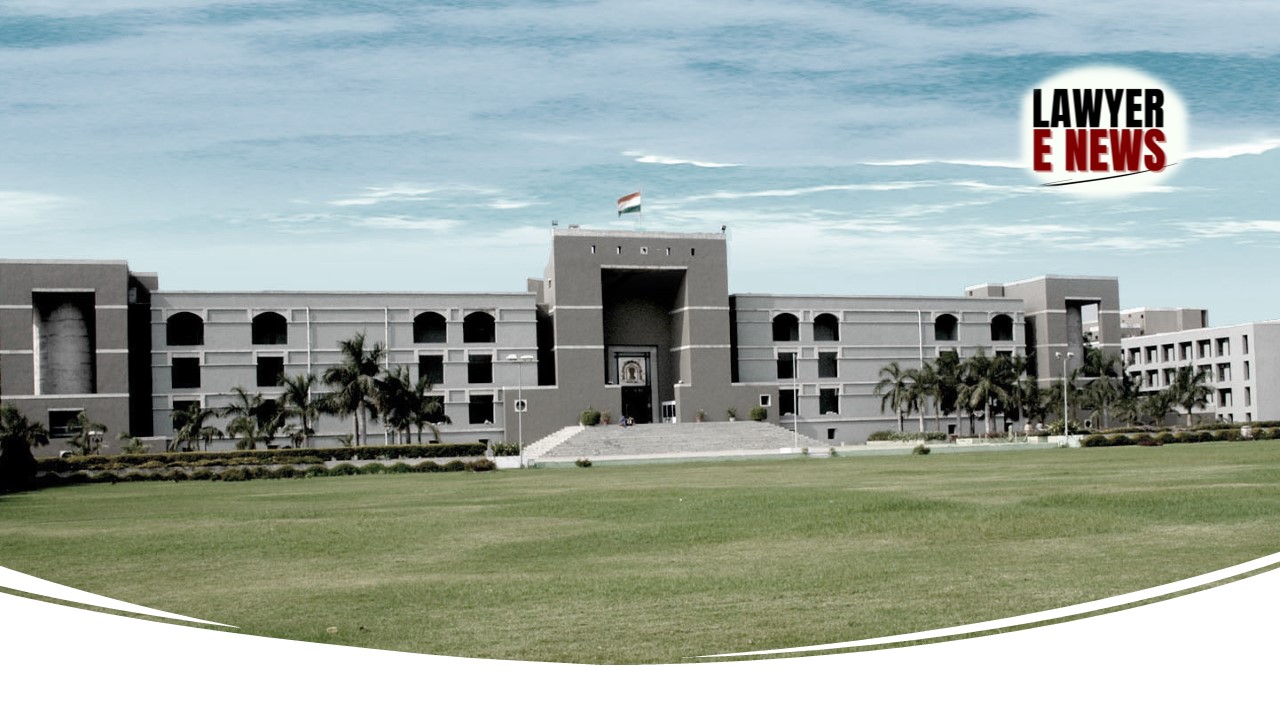-
by sayum
20 February 2026 10:40 AM



Mere Consistency in Witness Testimony Not Enough When Case Smacks of Falsehood — Gujarat High Court setting aside the conviction of multiple accused persons charged under Sections 143, 147, 148, 427, 435, and 395 of the Indian Penal Code, relating to alleged dacoity and arson at 'Divetiya Farm' in Kheda District. A Division Bench comprising Hon’ble Justice Ilesh J. Vora and Hon’ble Justice Sandeep N. Bhatt held that, “the prosecution has not proved the case beyond reasonable doubt by leading cogent and convincing evidence.”
While acquitting the accused, the Court declared, “There are material contradictions found in the statements of the eye-witnesses recorded before the police as well as depositions given by them before the trial Court; and that there is no recovery or discovery of any muddamal / stolen articles / properties; and that the muddamal was found lying in abandoned condition.”
The prosecution's case originated from an FIR lodged by Nasirbhai Mujirbhai Ahemadi, alleging that on 16.04.1999, a mob of 50-60 persons, including the appellants, raided his 'Divetiya Farm', destroyed property, and looted articles worth over ₹2,10,000. The dispute stemmed from an earlier incident where the complainant was allegedly warned by the accused not to erect fencing on a public pathway (Naal) situated on government land.
The Sessions Court convicted the accused based on eye-witness accounts and circumstantial evidence. The accused preferred Criminal Appeal No. 2593 of 2005. Simultaneously, the State and the complainant's son filed appeals seeking enhancement of punishment.
❝ First Version of Incident Suppressed, Delay in FIR Unexplained ❞ — Court
The High Court noted with concern that the FIR was registered at 9:45 p.m., nearly five hours after the complainant visited the scene despite the presence of police at the farm earlier that afternoon. The Court remarked, “The complainant did not lodge the complaint at that time, though asked by the police authority. This conduct of the complainant smacks a lot.”
It further pointed out, “No explanation for the delay is offered by the witnesses,” casting doubt on the genuineness of the prosecution’s version of events.
❝ Independent Evidence Missing — All Witnesses Were Either Employees or Known Persons of the Complainant ❞
Another critical observation of the Bench was that the prosecution failed to bring any independent witness on record. “Most of the witnesses are known to the complainant; either they were in employment under the complainant or they were labourers at the time of incident. There is no independent witness who supports the case of the prosecution,” the Court noted.
The Court stressed that given the admitted background of land dispute regarding fencing on a public path, the possibility of over-implication could not be ruled out.
❝ Muddamal Recovery Non-Existent and Panch Witnesses Hostile ❞
The High Court found that neither looted goods nor weapons allegedly used during the offence were recovered from the accused. “The panchnamas of recovery prepared at the police station do not disclose any recovery from the accused persons, and the alleged muddamal articles were found in abandoned condition,” the Court said.
It also highlighted that several panchnama witnesses turned hostile, severely affecting the evidentiary value of the prosecution case.
❝ Prosecution Has Failed to Prove Ingredients of Dacoity and Loot ❞
The Bench referred to Section 395 IPC defining 'Dacoity', which requires proof of conjoint robbery by five or more persons. The Court categorically held: “Since there is no recovery or discovery of any muddamal articles from any of the appellants; and the muddamal was found lying in abandoned condition; and the panchas of recovery panchnamas have turned hostile, the ingredients of Section 395 do not attract in the present case.”
The Bench also emphasized that no bodily harm or injuries were alleged or proved against any person during the incident, despite claims that the accused carried deadly weapons.
❝ Circumstantial Weakness, Contradictions, and Complainant’s Conduct Tilted the Case in Favour of the Accused ❞
Justice Sandeep N. Bhatt, speaking for the Bench, underlined that even though the prosecution tried to show that an incident happened, it could not establish the participation of the appellants. He said, “It appears that the complainant has not supported the case of the prosecution regarding essential ingredients of the offence. Similarly, the evidence of the panch-witnesses disclose some glaring aspects which cast serious doubt about the story of the prosecution.”
The Court also referred to the fact that the complainant was a lawyer who had initiated fencing on government land, obstructing villagers' access to their fields. The Court noted, “The conduct of the complainant, who was a lawyer by profession, clearly indicates about over implication of the accused.”
❝ Mere Consistency Is Not Sole Test of Truth, Courts Must Guard Against Adroitly Crafted Falsehoods ❞
Referring to Lakshman Prasad v. State of Bihar [(1981) Supp SCC 22], the Court reaffirmed that, “mere congruity or consistency are not the sole test of truth. Sometimes, even falsehood is given an adroit appearance of truth, so that truth disappears and falsehood comes on the surface.”
The Court concluded that this was one such case where procedural irregularities, contradictions, and witness-hostility rendered the prosecution's case unreliable.
Allowing the appeal, the Court held, “In the instant case, it cannot be said that the prosecution has proved the case beyond reasonable doubt by leading cogent and convincing evidence and, therefore, the benefit of doubt goes in favour of the appellants - accused.”
The following orders were passed: The judgment and order of conviction dated 15.12.2005 passed by the Fast Track Court, Nadiad were quashed. All accused were acquitted. The State’s appeal for enhancement and the complainant's son’s revision were dismissed.
Date of Decision: 27 March 2025
